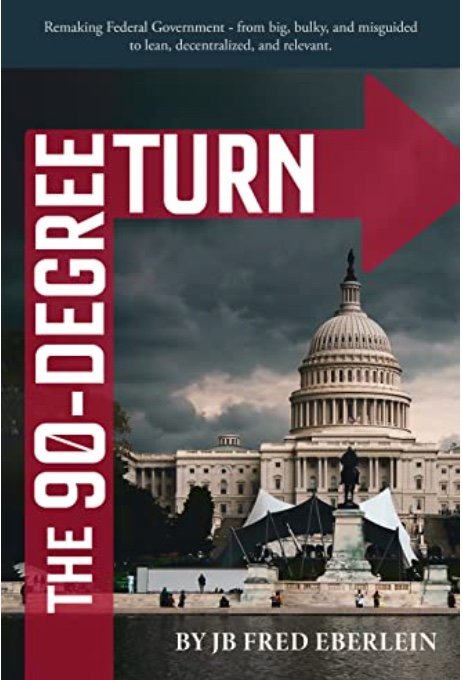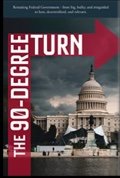Changing World Order
Ray Dalio's video, Principles for Dealing with the Changing World Order, has over 22 million views on YouTube. After watching it, I understand why.
Dalio is an American billionaire investor and hedge fund manager who founded Bridgewater Associates. According to Wikipedia, he is the second-wealthiest hedge fund manager next to George Soros.
In his video, which complements his book of the same name, Dalio does a deep dive into the economies of world empires going back 500 years. Creative and handsomely presented, his work is a pleasure to watch and rewatch. What makes it remarkable is Dalio's ability to translate history into data and show how it trends over time.
Examining eight metrics:
1. education
2. technological development
3. global markets competitiveness
4. economic output
5. share of world trade
6. military strength
7. financial centers
8. and world currency.
Dalio breaks down an empire's lifecycle into three stages:
1. the rise
2. the top
3. and the decline.
Why is this relevant to the 90-Degree Turn?
Looking at the Dutch, British, and U.S. empires, Dalio identifies 250 years as the typical lifecycle of dominant world powers. In the 90-Degree Turn, the U.S.'s old age of 233 years is cited as a core reason for the U.S.'s decline. Dalio seems to agree.
Age is just a number, but with this number comes the unwelcomed ills that have killed past empires. Debt, the wealth gap, and civil unrest that accelerated the decline of the Dutch empire in the 17th century, and the British empire in the 19th century, is being repeated in the U.S. today in the 21st.
Despite this dire outlook, Dalio doesn't go down the rathole of doom, gloom, and despair. Instead, he looks for answers. He doesn't just report his historical findings but unearths principles for measuring performance and adjusting course.
Based on five centuries of historical and economic data, Dalio sees a society's health as measured by:
1. leadership
2. education
3. character
4. rule of law
5. corruption
6. resource allocation efficiency
7. and openness to global thinking.
Seven characteristics are scaled from strong to weak, favorable to unfavorable, low to high, etc.
Seeing these as a means for measuring a society's health, Dalio doesn't believe decline is inevitable. Instead, he compares social health to physical fitness and notes that there's a lot we can do to improve and extend life.
"Events are in the saddle and ride mankind,” wrote Ralph Waldo Emerson.
But Emerson never qualified "events" as Dalio has. Now, as a result of Dalio’s work, we're exposed to new ways of seeing history and our country. And, we're given a lifeline for changing course. But a big question remains: Will we grab that lifeline or continue on our current path? Adhering to the status quo is our default setting until the light of an approaching train is detected.
History is inherently fuzzy – not always, but often. While we may enjoy reading, discussing, and debating it, very few have converted it into science, as Dalio has.
Lean management, change management, and landing a rocket, were all unknown until they were imagined, quantified, tested, and implemented. Finding new models to explain and expand the life of our democratic republic should be no different. Dalio provides us with a roadmap.
Our third president, Thomas Jefferson, encouraged an evolving government. In 1816, he wrote: "Laws and institutions must go hand in hand with the progress of the human mind… as new discoveries are made, new truths disclosed… institutions must advance also, and keep pace with the times."
As a nation, the U.S. has evolved. However, our government systems remain stuck in the past. When we treat the constitution as "too sacred to be touched," as Jefferson wrote we undermine our ability to do better.
The democratic republic of the United States of America can endure, but it needs to find new models for governing the country. To achieve this, we must separate the principles of government from the mechanics of government. The Preamble to the Constitution doesn't go away, but our model for fulfilling its promise does.
Dalio provides a new perspective on government and society and a means for doing better. The key, he explains, is to see beyond our lifetime. This was the lesson he learned early in his career. It was the aha moment that propelled him to study the history of empires. He didn't know what he'd find but what he uncovered tells us a lot about the U.S. today and what can be done to put us on a better path.
After analyzing rising and declining empires, Dalio ends with two simple objectives:
earn more than you spend
treat each other well.
Everything else – from education to economic output – he explains, is a means for reaching these two goals. A clear and simple foundation for extending the life of a nation.
Ever the optimist, Dalio ends as though quoting Jefferson (or maybe Luke Skywalker). He says: "let the force of evolution be with you."
To that, I say: Bravo!
Footnote: As a theory, the 90-Degree Turn needs validation. Applying Dalio's seven social health measurements to the Needs Monitor is a concept I would like to mock up. In addition to Dalio, I would like to find other models for successful societies to apply to the 90-Degree Turn. If you know any, please bring them to my attention. Email me at: jbfred@90degreeturn.com. Thanks.


